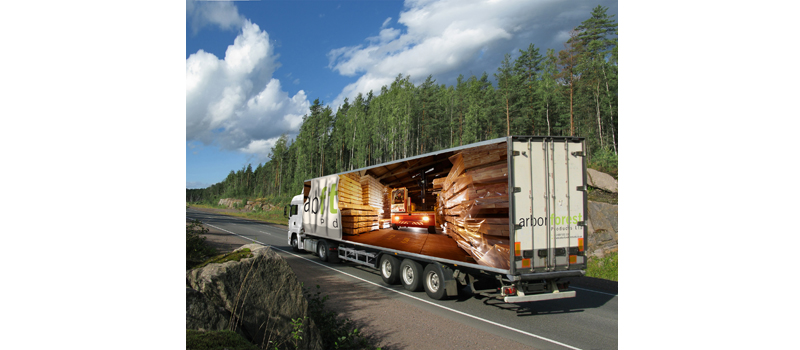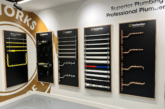
PBM speaks with Arbor Forest Products to discuss the company’s plans for sustained growth based on a focused product range and commitment to customer service.
With a turnover in excess of £70 million, Arbor Forest Products is one of the largest independent timber importing businesses in the UK and describes itself as “a business built on a passion for customer service.” The firm can trace its roots back to 1951 with the formation of JB Stringer, which operated from Hull Docks before acquiring a site in New Holland in the mid-1960s. The site was continually developed over the next 40 years, whilst the business was renamed Arbor Forest Products in 2008.
The business says it provides a genuinely dedicated service, an attention to detail and — most importantly — a high quality product range for all of its clients. From this foundation, it has developed strong long-term customer relationships built on trust and whether it’s a multi-site, multi-million pound organisation or single site, owner managed business; Arbor Forest Products (AFP) states that it can provide the solution.
Operating from a 70-acre site on the banks of the river Humber, AFP is one of the largest privately owned dedicated timber terminal in the UK, regularly unloading vessels carrying up to 5,500 cubic metres of timber products. It has long-standing trade partnerships with many of the highest quality and most reputable softwood suppliers in Europe and maintains a softwood timber stock holding, at any one time, of around £12 million.
£6 million has been invested in its sawmill alone, transforming it into a highly efficient machining facilities which produces more than 30 million linear metres of timber a year. However, it is not simply about volume — the sawmill is capable of switching with minimal downtime, from high speed bulk production running at 250 metres a minute, to smaller bespoke orders, all fully wrapped and length stamped for easy identification by the customer.
With more than 3,500 product lines in stock ranging from Arbordeck — providing softwood, anti-slip and Trex composite decking options — to door casings, carcassing and roof battens, where AFP has achieved the BM TRADA Q Mark, the sawmill is at the heart of the business and also key to the success of its customers’ businesses.
To offer customers a single source of supply, AFP also has its own 180,000 cubic metre timber treatment plants operating to a stringent environmental policy and conforming fully to British Standards. The plants treat more than seven million pieces of timber every year, finished in either green or brown across a range of User classes, to meet individual customer requirements.
Sustainability runs through the entire business, from operating a Responsible Purchasing Policy meeting the latest EU Timber Regulations, supplying timbers fully accredited to both FSC & PEFC, to the way it recycles its waste using innovative Biomass technology to heat its 50,000 sq ft MDF facility.
It has invested more than £3.5 million to provide a fully integrated MDF processing line producing twice primed skirtings and architraves. The new facility is said to be one of the most sophisticated in Europe, producing over five million metres of mouldings a year, all machine sanded and painted to the most exacting finish.
Whilst high quality manufacturing is a fundamental cornerstone to the business, it says that innovation has to reach beyond the products themselves to also provide customers with a service that will also be of benefit to their own businesses. Multi-product distribution to customers is a vital component of this ethos and is offered through the ‘Warehouse on Wheels’ service.
This service enables customers to mix smaller quantities of products on the same delivery vehicle, meaning they can manage their stock inventory more closely and ensure that they get the products when they are needed.
The company is proud to have been the recipient of many industry awards, including Timber Supplier of the Year to key buying groups, and declares that it will continue to invest and innovate to meet changing market demands.









